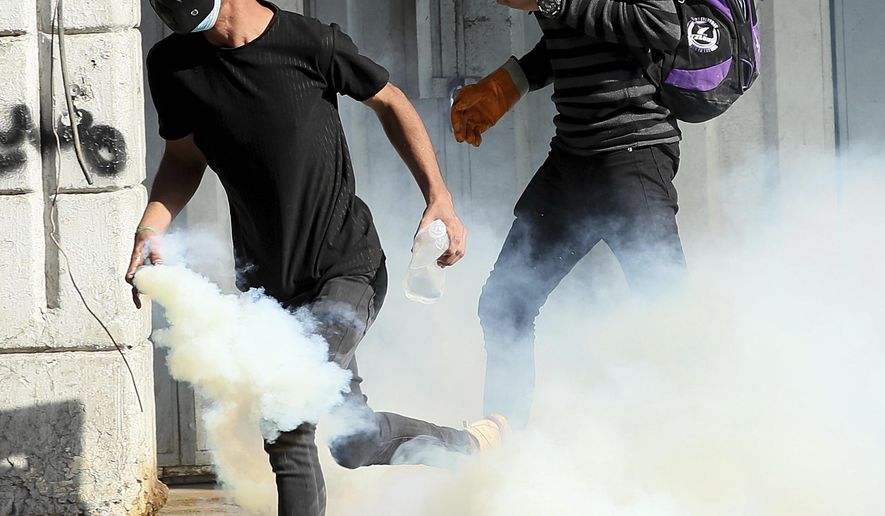BAGHDAD (AP) - Anti-government demonstrations in southern Iraq blocked roads leading to the country’s main port and an oil field on Monday, while the Iraqi central bank reduced working hours because of the ongoing unrest, security officials said.
Protesters burned tires, blocking the roads to the Umm Qasr port, responsible for the bulk of the country’s commodities imports, a security official said in the city of Basra. Protesters also cut roads leading to a major oil field in the southern province of Basra.
Demonstrators used the same tactics to cut access to roads leading to the airport in the holy city of Najaf.
This is the second time the major Iraqi port has been blocked since the protests erupted on Oct. 1, when thousands of Iraqis, mostly youth, took to the streets denouncing rampant government corruption, failing state services including electricity cuts, and a lack of job opportunities.
“It was tough times when the port was closed,” said a senior port official, referring to previous closures on Oct. 29 that lasted nearly a week. The source said trade activity had been cut by nearly half as a result but imports had been rebounding gradually since. The port is an important source of revenue for the government.
In Basra, the blocked roads prevented oil workers from accessing Zubair oil field, which produces over 400,000 barrels per day and is operated by Italian oil giant ENI. The oil field accounts normally for 8% of Iraq’s average daily crude production.
Mahmoud Razzaq, a protester in Basra, said the disruptions to trade and the economy aimed to drive home the demand for sweeping aside Iraq’s entire ruling elite.
“None of the demands can be achieved without the toppling of the regime,” he said, adding that demonstrations would continue until the whole government resigned.
In Najaf, protesters blocked the road leading to the airport and other key arteries in the city.
Meanwhile, working hours were reduced for employees of the Central Bank in Baghdad, located on the central Rasheed Street that has seen weekly clashes. On Sunday, two protesters were wounded when security forces fired tear gas at them, near the bank’s headquarters.
“We are still working normally but we reduced working hours,” said a senior director-general in the bank.
At least 320 people have been killed and thousands wounded in the capital and the mostly Shiite southern provinces since the unrest began. Security forces have used heavy tear gas, live rounds and stun guns to repel demonstrators from reaching the heavily fortified Green Zone, the seat of Iraq’s government and also home to various foreign embassies including the U.S.
Also on Sunday, Prime Minister Adil Abdul-Mahdi met with U.S. Ambassador Mathew Tueller and Gen. Patrick White, commander of the U.S.-led coalition in Iraq and Syria.
Talks focused on defeating Islamic State group militants that are still operating in the country, and training Iraqi security forces, according to a statement from the prime minister’s office.
U.S. officials have condemned the violence used by security forces against protesters, but have come short of calling for Abdul-Mahdi to resign.




Please read our comment policy before commenting.